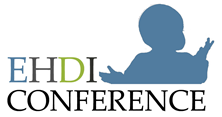| Presenter Information: |
| Presenter 1: |
Name: William Eiserman
Affiliation:
William Eiserman is the Director of Early Childhood Projects at the National Center for Hearing Assessment and Management. Over the past 25 years William has overseen a variety of projects to improve the quality of early intervention services for children with disabilities. Most recently William has been directing the Early Childhood Hearing Outreach (ECHO) Initiative at NCHAM which focuses on updating hearing screening practices for children served by Head Start programs, community health clinics and early intervention programs. His strengths as an educational researcher and evaluation, instructional designer combined with his knowledge of special needs populations has lead to significant advances in the development of periodic early childhood hearing screening practices.
|
| Presenter 2: |
Name: Terry Foust
Affiliation:
Terry Foust, Au.D., CCC-A/SLP, is a consulting pediatric audiologist and speech-language pathologist with the National Center for Hearing Assessment and Management (NCHAM). He serves as one of the NCHAM EHDI national network audiologists and as an audiology consultant to the Hearing Head Start ECHO Project with NCHAM. He also provides consultation for MCHB, HRSA and the Office of Performance Review. He is the administrator for Intermountain Healthcare’s Community and School Clinics which are healthcare facilities dedicated to serving the low income, uninsured and homeless populations.
Dr. Foust has developed and directed EHDI programs in Utah and early periodic hearing screening programs in Early Head Start and community clinics. He has directed early intervention programs as well as provided direct clinical services at a major children’s hospital. As a national EHDI network audiologist, Dr. Foust provides technical assistance to Utah, North Dakota and Montana.
|
| Presenter 3: |
Name: Lenore Shisler
Affiliation:
Lenore Shisler is a Senior Research Scientist with the National Center for Hearing Assessment and Management. Her work scope has included providing technical assistance to states implementing newborn hearing screening programs, advising a software development team on international, state and hospital data management needs, writing software user guides, and working with the American Academy of Pediatrics and other professional organizations to create instructional materials for physicians and parents on infant hearing loss. Most recently, her work has focused on promoting periodic screening in early childhood settings to reach vulnerable populations to identify children with post-neonatal hearing loss. Current projects include developing and refining instructional materials to assist Head Start grantees in improving and updating their hearing screening practices and collaborating in the development of a protocol and materials to assist primary care providers in integrating objective hearing screening into services provided routinely during well child visits.
|
| Presenter 4: |
Name: Jan Buhrmann
Affiliation:
Jan Buhrmann received her Ph.D. in Sociology in 1998 from the University of Colorado at Boulder. Her areas of specialization include qualitative and quantitative research, health care and health care policy. During the pilot phase of the Hearing Head Start Project, she served as a Research Associate and Project Assistant. Her responsibilities included database design, data analysis and management, project coordination, communication and coordination with Head Start programs, and overall assistance with project planning. In the next phase of the project, she continued her responsibilities with database design and data analysis, and also became more involved in facilitating and arranging training meetings in additional states, taking an active role in project coordination, and developing an expanded database. Her continued work with the ECHO Initiative – Head Start includes training assistance, and coordination with Early Head Start programs, state ECHO Team Coordinators, and other state representatives and project partners.
|
|
| Abstract Information: |
| Title: |
The Changing Role of Audiologists and other EHDI Professionals in Early Childhood Hearing Screening |
| Primary Track: |
7-Program Evaluation and Quality Assurance
|
| Keyword(s): |
Early Childhood Periodic Screening |
Abstract: |
In the same way that pediatric audiologists' roles expanded from performing hearing screenings in nurseries to supervising hospital-based hearing screening programs, audiologists, speech-language pathologists, and other experienced professionals have increasing opportunities to help develop and supervise periodic screening programs in early childhood care settings. For many professionals trained to work directly with children and families, training screeners, developing screening programs, and monitoring outcomes demands an expanded set of skills and resources.
This presentation will discuss resources that will be available from the National Center for Hearing Assessment and Management to help audiologists and other professionals establish and consult with screening programs in early childhood care settings. Audiologists and other EHDI professionals interested in helping to establish an early childhood screening program may be able to tap into a limited set of resources to help support this effort. These resources will be discussed along with a set of implement materials designed to help determine the most appropriate screening method, select equipment, establish a screening and follow-up protocol, determine who should be trained to screen, guide training processes, and monitor program quality. Audiologists and other EHDI professionals who have already assisted in the development of early childhood screening programs will share their experiences and insights. Participants will have a renewed commitment to ensuring the early identification efforts do not end with newborn hearing screening! |
| Presentation(s): |
Not Available
|
| Handouts: |
Not Available
|
|

